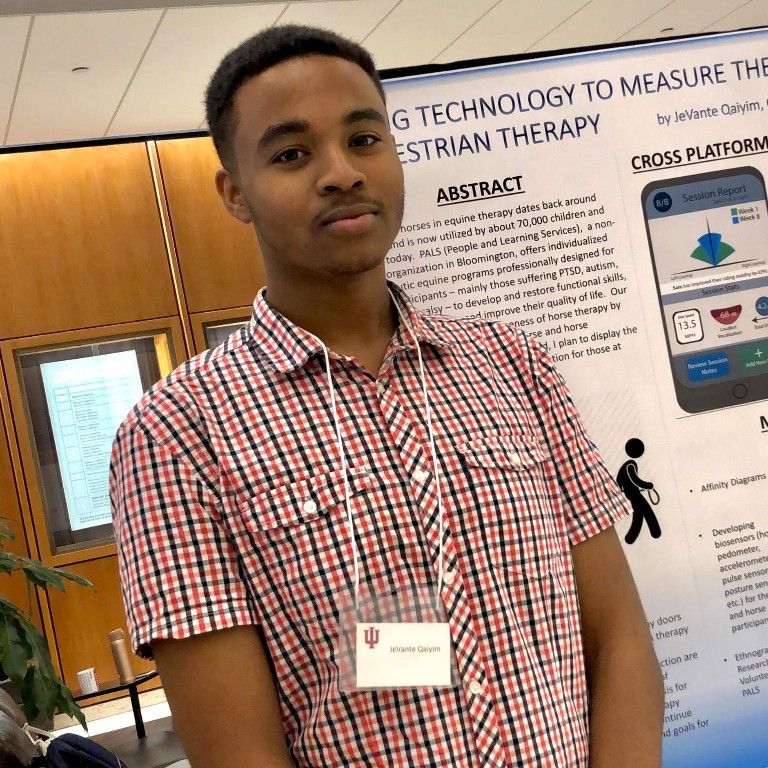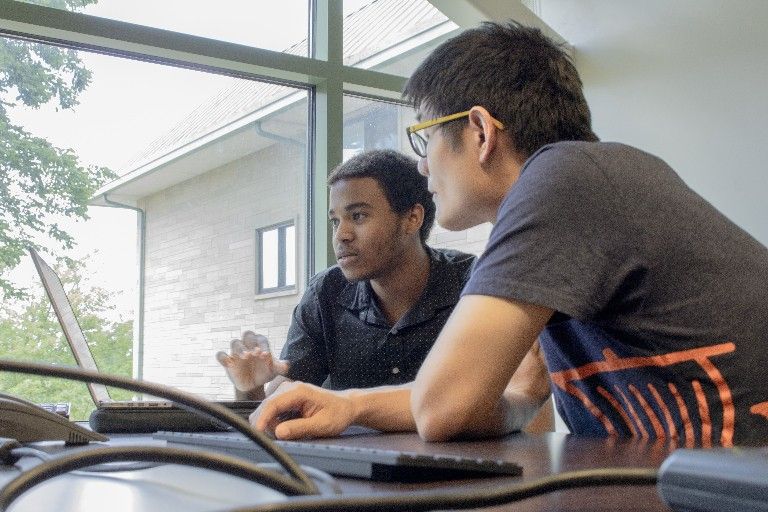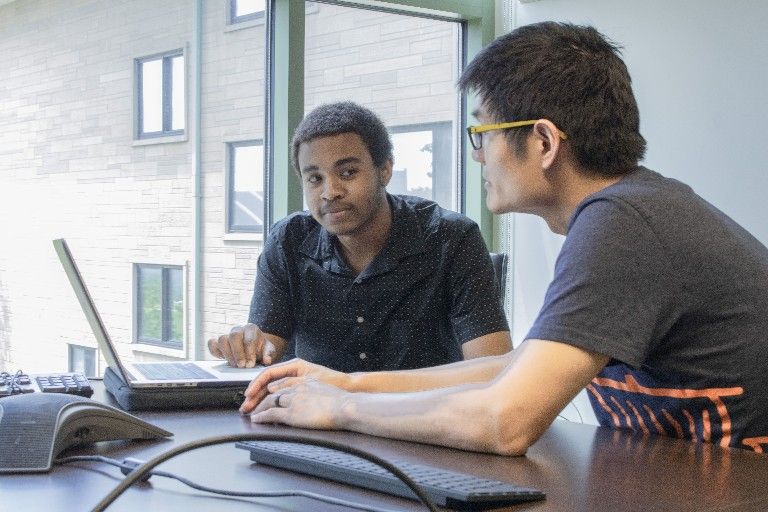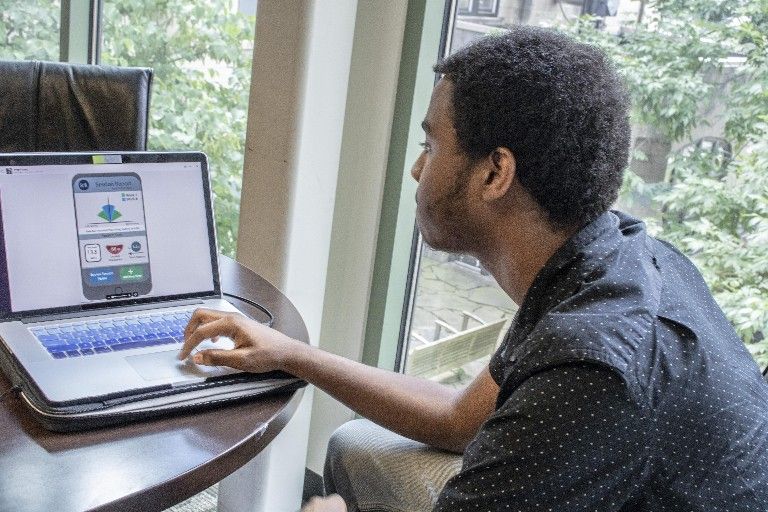Rising sophomore JeVante Qaiyim spent his summer focusing on designing an application that helps participants with animal-assisted therapy – primarily with horses.
Qaiyim first started his research after taking a course with Dr. Kody Steffy, Director of Undergraduate Research, and learning about the LSAMP program. Steffy encouraged STEM students to apply to the program.
LSAMP at IU Bloomington is a faculty-mentored summer research program. Student scholars are paid and receive housing and meal plans for the duration of the program.
LSAMP students become part of a vibrant research community and have access to perks like travel support. The goal of LSAMP is to increase the number of underrepresented minority students graduating from IU with STEM degrees.
After being given this opportunity, Qaiyim conducted research with Dr. Patrick Shih, Assistant Professor of Informatics in the School of Informatics, Computing, and Engineering.
Before Qaiyim could begin designing, he participated in the volunteer program to get familiar with the specific activities and needs of participants in horse therapy. This experience allowed him to gather data to create an app for caregivers and volunteers.>
"The majority of the things we did was walking the horse and learning how to help manage horse participants when they ride the horses because they could possibly fall off," Qaiyim said. "We would have to stabilize and really help out the horse participant ride the horse.
Dr. Patrick Shih’s lab focuses on animal assistance therapy but has also worked with music therapy and assisted people with mental health issues. Its emphasis is developing technologies that help people with disabilities.
"So we immerse ourselves in their environment, and we talk to the different stakeholders, the families, the caregivers, the therapists, and the volunteers to understand their concerns, constraints, and challenges," Shih said. "So we can design technology that better suits their needs."
Qaiyim spent his summer developing an app that uses biosensors attached to the horse and horse participant to measure and track improvement.
"He is really learning at a rapid pace compared to a lot of people," Shih said. "'He's a great student."
The application will track and calculate the participant's coordination, balance, and posture through the biosensors. Data collected can be shared with different stakeholders. For example, therapists can use it to see to what degree participants can bend their backs.
"I learned a lot about the design because the Ph.D. student recommended me to look at the design of the app and how it should be structured," Qaiyim said. "I also learned a lot about horses by actually going to the place so that I can learn more about it."
For students interested in getting involved in Dr. Shih's lab, he encourages students to reach out to him through email and apply to programs like LSAMP
"You have to be passionate about learning. You have to be able to take the initiative, depending on the type of therapy you're doing," Shih said. "I highly encourage students to apply to these programs."
Students who have no prior training can learn the basics within the lab. For Qaiyim, he continues to learn Apache Cordova to create the app for both Android and iOs users.
LSAMP at IU has provided Qaiyim the experience to specialize in something concrete in this project. He also plans to continue to work with Dr. Shih until he graduates.
"There are so many interesting things that I want to be part of," Qaiyim said. "I want to develop the application where we can integrate the data. I also want to focus on another animal or in another part of this research."
Information on the LSAMP program is available at undergradresearch.indiana.edu. You can also contact Dr. Kody Steffy, Director of Undergraduate Research, at ksteffy@indiana.edu.





